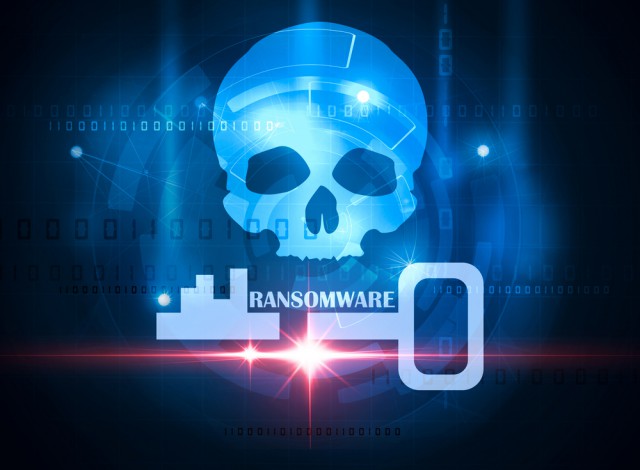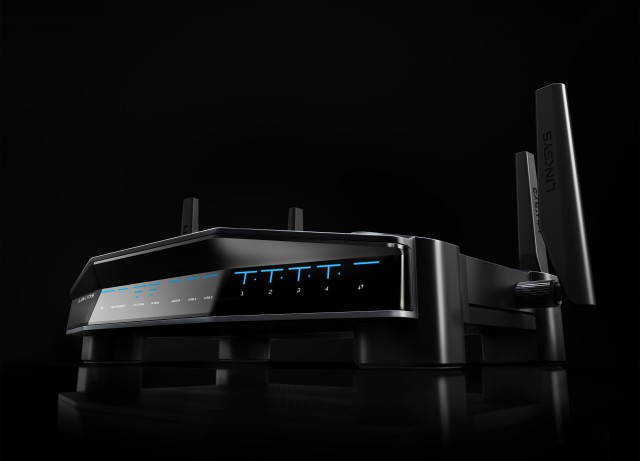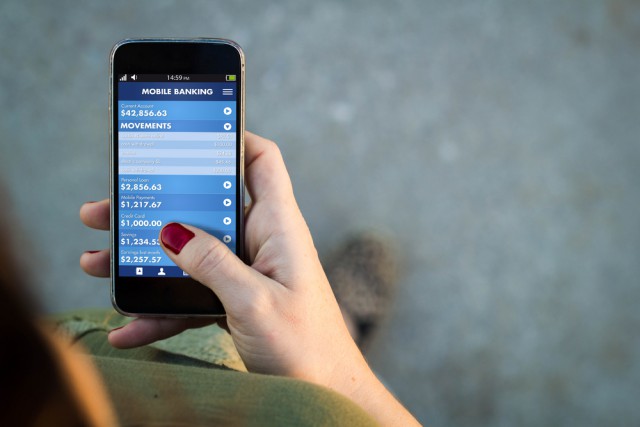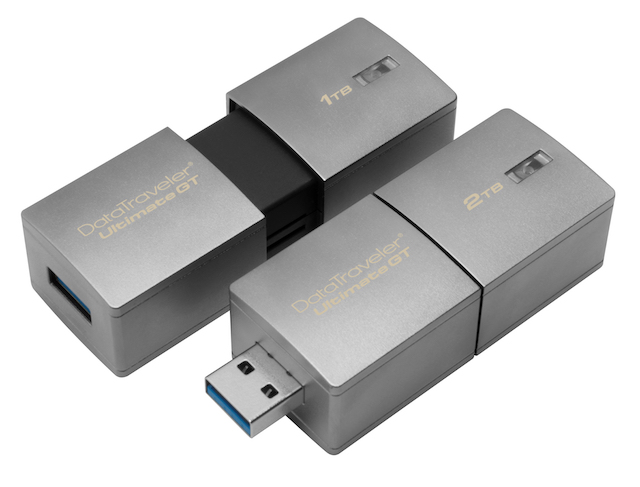
Ransomware set to increase in 2017
Ransomware has been one of the major threats faced by both businesses and individuals in 2016 and many security analysts don't see it going away any time soon.
Threat intelligence specialist Recorded Future echoes that view and believes we’ll see more attacks aimed at shaming the victims.
CloudShot uploads screenshots to Google Drive, OneDrive, more
Cloud storage-friendly screenshot tool CloudShot has just hit version 5.7. An improved OAuth implementation means you can now directly upload your screenshots to Google Drive and OneDrive, as well as Dropbox, Imgur or your own FTP server, as well as saving it to local or network drives.
The autoupdate system is now based on the open-source Squirrel framework, as used by big-name projects like Slack and Visual Studio Code. Keep in mind that this isn’t supported in the portable build.

The Mirabook turns your smartphone into a laptop
Smartphones are great for doing a spot of work in a pinch, but they aren’t really a substitute for a laptop.
The Mirabook solves this problem by giving your smartphone all the capabilities of a laptop, including a large full HD screen, a keyboard, touchpad, additional storage, and a high capacity battery.

A closer look at Qualcomm's new Snapdragon 835 flagship mobile processor
Qualcomm announced the Snapdragon 835 last year, but at the time it did not reveal much about what's new in its latest flagship mobile processor. Today, right before CES 2017 officially kicks off, the US chip maker is giving us more information about improvements it introduces.
We know the basics: the Snapdragon 835 is Qualcomm's first mobile processor built using the 10nm FinFET manufacturing processor, comes with Quick Charge 4, real-time thermal management, and is, as you might expect, faster and more energy-efficient than the previous range-leader, the Snapdragon 821. Now, let's take a closer look at the changes in the new flagship.
CloudShot 5.7 uploads screenshots to Google Drive, OneDrive, more
Cloud storage-friendly screenshot tool CloudShot has just hit version 5.7.
An improved OAuth implementation means you can now directly upload your screenshots to Google Drive, OneDrive, Dropbox, Imgur or your own FTP server, as well as saving it to local or network drives.

Samsung's new QLED TVs promise great image quality
One of the things that you can expect to see at CES is new TVs. Among the most interesting are Samsung's new Q9, Q8 and Q7, part of its new QLED TV series that promises to offer its "best picture quality -- ever" and a more advanced and user-friendly design.
The main appeal of the QLED TV series comes from the claimed advancements in image quality. Samsung says that the range can accurately display the DCI-P3 color space, no matter the level of brightness, using new metal Quantum Dots.

Acer's insane Predator 21 X gaming laptop costs nearly as much as a new car
It may be hard to believe, but Acer has a gaming laptop that is almost as expensive as a new car. It's called the Predator 21 X, and it has the craziest design and most-impressive specs sheet that I have ever seen. The price? It will be offered for a jaw-dropping $8,999 in the US and €9,999 in Europe.
Acer actually unveiled the Predator 21 X at IFA 2016, but only chose to reveal the price and availability right before CES 2017 kicks off this week. So, what exactly makes it so special to warrant that price tag?

Three in four businesses collect IoT data
It looks like 2017 will be a great year for Internet of things industry. 451 Research's new report says that almost three quarters of all businesses worldwide, 71 percent of them to be exact, are gathering IoT data today.
The report is based on a survey of 1,000 organizations, scattered all over the globe. The best part about this figure is that it represents a three percent jump compared to its last report, which was released a quarter ago.

HyperX unveils Cloud Revolver S gaming headset with Dolby Headphone 7.1 USB dongle
Do you game on your PC, bro? Of course you do. With so many great video games available for PC nowadays, it is hard not to get caught up in it. For many titles, wearing a headset can enhance the experience, allowing you to communicate with teammates or opponents.
HyperX is known for producing excellent headsets, and today, it unveils a new variant -- sort of. You see, the company is packaging its existing Cloud Revolver headset with a Dolby Headphone-capable USB sound card dongle / DAC and giving it an "S" moniker.

Linksys WRT32X is an AC3200 router for hardcore gamers
Wireless routers have come a long way in recent years when it comes to transfer speeds, but not in terms of lag, which remains a concern -- for gamers, in particular. To enjoy playing a game online, low latency is needed and over a wireless connection that can sometimes be a problem. It is why some routers include workarounds for users to turn to when they run into issues.
Linksys has come up with a different approach for its new WRT32X AC3200 router, which is meant for "serious online gamers". Its software includes a number of features, part of Rivet Networks' Killer Prioritization Engine, that should help reduce latency and lag when playing games, listening to music, or watching videos online.

Banking apps are in dire need of an overhaul
It’s no secret that customers increasingly prefer to use mobile banking apps to manage their cash "on-the-go" over online banking. In fact, did you know that mobile banking apps are being used around 7,610 times a minute? Now consider this alongside the Competition and Markets Authority’s (CMA) recent announcement regarding UK banks having to offer the same customer service through its apps as can be found in high street branches. This means that customers will be able to access details of their entire finances through a single mobile phone app by 2018.
That’s a whole heap of data from bank statements, transfers, loans, overdrafts, savings, mortgages to name a few, for one person. Multiply this by the estimated 11 million of us who have already decided to swipe instead of log-on.

Classic freeware HostsMan gets its yearly update
Classic freeware HOSTS manager HostsMan has seen its first update since November 2015. The new release now supports eight HOSTS file update sources, including hpHosts, MVPS Hosts, Cameleon and -- new this time -- "Dan Pollock’s host file".
The URLs for "Peter Lowe’s AdServers List" and "Malware Domain List" have been updated, so they should be working again.

Acer unveils rugged Chromebook 11 N7 (C731) laptop for education
Chromebooks are wonderful computers -- if they meet your needs. Look, if you do hardcore video editing, or have a need for programs that only run on Windows or macOS, then yeah, Chrome OS will stink -- for you. However, if you live in the web browser and are always online anyway, why not a Chromebook?
Laptops running Chrome OS are particularly wonderful for education, as they are inexpensive, easy to manage, and very secure. Today, Acer announces an affordable model -- aimed at schools -- that it calls Chromebook 11 N7 (C731). Best of all, it is very durable, making it less likely to break in the hands of careless children.

Amazon announces Fire TV Edition for Smart TVs
When I bought a new 4K television, my first purchase to go with it was Amazon’s Fire TV box with 4K Ultra HD. The tiny box provides a range of great 4K content -- mostly Amazon Originals, although there’s also a decent selection of movies available to purchase.
Soon you might not need to buy anything in order to view 4K content from Amazon though, as the retail giant today announces Fire TV Edition, which will come built into the latest 4K Smart TVs.

Kingston DataTraveler Ultimate GT 2TB is world's largest capacity USB flash drive
As more and more people embrace cloud storage, USB flash drives are becoming less essential. This is unfortunate, as it can be empowering to store your own data locally -- not needing an internet connection to access things like family photos and movies.
Today, Kingston announces a product that may get people excited about flash drives again. The company has created a 2TB pocket flash drive (also available in 1TB), called DataTraveler Ultimate GT (Generation Terabyte). This is now the world's largest capacity USB flash drive.


